 W
WThe Book of Judges is the seventh book of the Hebrew Bible and the Christian Old Testament. In the narrative of the Hebrew Bible, it covers the time between the conquest described in the Book of Joshua and the establishment of a kingdom in the Books of Samuel, during which biblical judges served as temporary leaders. The stories follow a consistent pattern: the people are unfaithful to Yahweh and he therefore delivers them into the hands of their enemies; the people repent and entreat Yahweh for mercy, which he sends in the form of a leader or champion ; the judge delivers the Israelites from oppression and they prosper, but soon they fall again into unfaithfulness and the cycle is repeated. Scholars consider many of the stories in Judges to be the oldest in the Deuteronomistic history, with their major redaction dated to the 8th century BCE and with materials such as the Song of Deborah dating from much earlier.
 W
WAbimelech was the king of Shechem and a son of biblical judge Gideon. His name can best be interpreted as "my father is king", claiming the inherited right to rule. He is introduced in Judges 8:31 as the son of Gideon and his Shechemite concubine, and the biblical account of his reign is described in chapter nine of the Book of Judges. According to the Bible, he was an unprincipled, ambitious ruler, often engaged in war with his own subjects.
 W
WAchsah, was Caleb ben Yefune's only daughter. The meaning of her name is uncertain.
 W
WBarak was a ruler of Ancient Israel. As military commander in the biblical Book of Judges, Barak, with Deborah, from the Tribe of Ephraim, the prophet and fourth Judge of pre-monarchic Israel, defeated the Canaanite armies led by Sisera.
 W
WThe biblical Battle of Mount Tabor takes place during the time of the Judges between the forces of King Jabin of Canaan who ruled from Hazor, and the Israelite army led by Barak and Deborah. It is recorded in the Book of Judges, chapters 4 and 5.
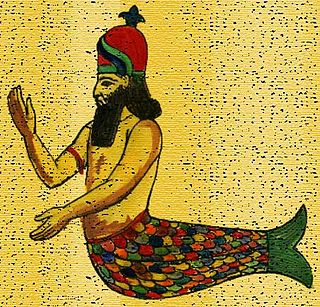 W
WDagon or Dagan is an ancient Mesopotamian and ancient Canaanite deity. He appears to have been worshipped as a fertility god in Ebla, Assyria, Ugarit, and among the Amorites.
 W
WAccording to the Book of Judges, Deborah was a prophetess of the God of the Israelites, the fourth Judge of pre-monarchic Israel and the only female judge mentioned in the Bible, and the wife of Lapidoth. Deborah told Barak that God commanded him to lead an attack against the forces of Jabin king of Canaan and his military commander Sisera ; the entire narrative is recounted in chapter 4.
 W
WAccording to the Book of Judges, Eglon was a king of Moab who oppressed Israel.
 W
WEhud ben‑Gera is described in the biblical Book of Judges as a judge who was sent by God to deliver the Israelites from Moabite domination. He is described as being left-handed and a member of the Tribe of Benjamin.
 W
WGaal (Hebrew:גַּעַל) was a minor 12th century BCE biblical character, introduced in the 9th chapter of Judges in the Hebrew Bible as the son of Ebed or Eved, or the son of a slave. His story is told in Judges 9:26–41.
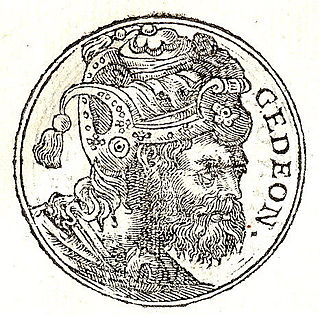 W
WGideon, also named Jerubbaal and Jerubbesheth, was a military leader, judge and prophet whose calling and victory over the Midianites are recounted in chapters 6 to 8 of the Book of Judges in the Hebrew Bible.
 W
WGideon and Samson: Great Leaders of the Bible is a 1965 Italian historical film directed by Marcello Baldi and Francisco Pérez-Dolz. Consisting of two segments, the first half tells the story of Gideon, while the second the story of Samson.
 W
WJael or Yael is a woman mentioned in the Book of Judges in the Hebrew Bible, as the heroine who killed Sisera to deliver Israel from the troops of King Jabin.
 W
WIbzan appears in the Hebrew Bible as the tenth of the Judges of Israel. Very little is said about him, except the following:
 W
WJael or Yael is a woman mentioned in the Book of Judges in the Hebrew Bible, as the heroine who killed Sisera to deliver Israel from the troops of King Jabin.
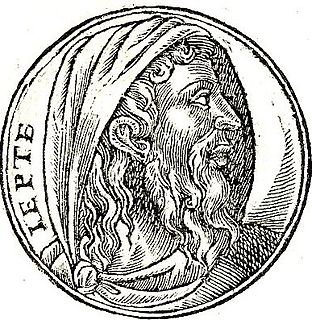 W
WJephthah, appears in the Book of Judges as a judge who presided over Israel for a period of six years. According to Judges, he lived in Gilead. His father's name is also given as Gilead, and, as his mother is described as a prostitute, this may indicate that his father might have been any of the men of that area. Jephthah led the Israelites in battle against Ammon and, in exchange for defeating the Ammonites, made a vow to sacrifice whatever would come out of the door of his house first. When his daughter was the first to come out of the house, he immediately regretted the vow, which would require him to sacrifice his daughter to God. Jephthah then carried out his vow. Traditionally, Jephthah is listed among major judges because of the length of the biblical narrative referring to him, but his story also shares features with those of the minor judges, such as his short tenure—only six years—in office.
 W
WJephthah's daughter, sometimes later referred to as Seila or as Iphis, is a figure in the Hebrew Bible, whose story is recounted in Judges 11. The judge Jephthah had just won a battle over the Ammonites, and vowed that he would offer the first thing that came out of his house as a burnt offering to Yahweh. However, his only child, an unnamed daughter, came out to meet him dancing and playing a tambourine. She encourages Jephthah to fulfill his vow but asks for two months to weep for her virginity. After this period of time Jephthah fulfilled his vow and offered his daughter.
 W
WManoah is a figure from the Book of Judges 13:1-23 and 14:2-4 of the Hebrew Bible. His name means "rest" or "peace".
 W
WManoah's wife is an unnamed figure in the Book of Judges, the wife of Manoah. She is introduced in Judges 13:2 as a barren woman. The angel of the Lord appears to her and tells her she will have a son. She later gives birth to Samson.
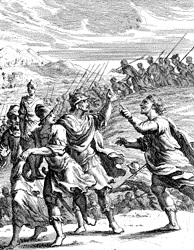 W
WThe narrative of Micah's Idol, recounted in the Book of Judges, concerns the Tribe of Dan, their conquest of Laish, and the sanctuary that was subsequently created there.
 W
WOthniel was the first of the Biblical judges. The etymology of his name is uncertain, but may mean "God/He is my strength" or "God has helped me".
 W
WShamgar, son of Anath, is the name of one or possibly two individuals named in the Book of Judges. The name occurs twice:at the first mention, Shamgar is identified as a Biblical Judge, who repelled Philistine incursions into Israelite regions, and slaughtered 600 of the invaders with an ox goad; the other mention is within the Song of Deborah, where Shamgar is described as having been one of the prior rulers, in whose days roads were abandoned, with travelers taking winding paths, and village life collapsing.
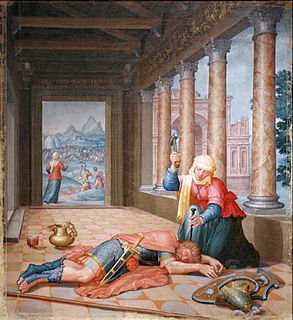 W
WSisera was commander of the Canaanite army of King Jabin of Hazor, who is mentioned in Judges 4–5 of the Hebrew Bible. After being defeated by the forces of the Israelite tribes of Zebulun and Naphtali under the command of Barak and Deborah, Sisera was killed by Jael, who hammered a tent peg into his temple.
 W
WSisera's mother is an unnamed biblical figure mentioned in the Book of Judges. Her son, Sisera, was defeated in battle by Deborah and Barak, and then killed by Yael, who drove a tent peg through his skull.
 W
WAccording to the Book of Judges, Deborah was a prophetess of the God of the Israelites, the fourth Judge of pre-monarchic Israel and the only female judge mentioned in the Bible, and the wife of Lapidoth. Deborah told Barak that God commanded him to lead an attack against the forces of Jabin king of Canaan and his military commander Sisera ; the entire narrative is recounted in chapter 4.
 W
WThe woman of Thebez is a character in the Hebrew Bible, appearing in the Book of Judges. She dropped a millstone from a wall in order to kill Abimelech.
 W
WZebul is a character in the Hebrew Bible, appearing in Judges 9. He is one of Abimelech's officers, and the governor of the city of Shechem. Zebul played an important role in the rebellion and defeat of Gaal, secretly sending messengers to Abimelech warning him of the situation.